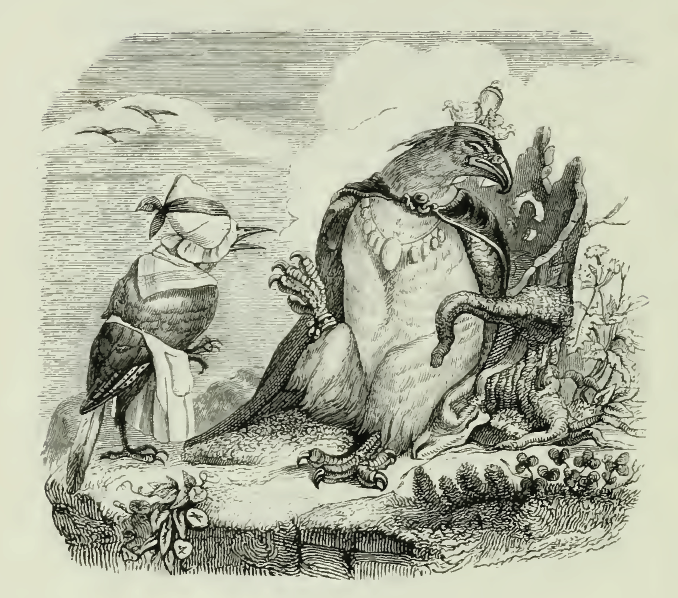101. Of the Four-Footed Beasts Entering into an Alliance with the Fishes against the Birds
The four-footed beasts, when war was proclaimed against them by the birds, enter into a league with the fishes that they would defend them with their help from the fury of the birds. But, when they expected the desired succours, the fishes deny that they are able to come to them by land.
Moral. This fable advises us that we do not make them companions to us who, when there is need, are not able to be present to us.
102. Of a Man who Went to a Cardinal Lately Created for the Sake of Congratulating Him
A certain man, very facetious, hearing that his friend was preferred to the dignity of the cardinalship, went to him for the sake of congratulating him, who, puffed up with the honor, dissembling to know his old friend, asked who he was. To whom he said, as he was ready at jests, "I pity thee and others who arrive at honors of this kind, for, as soon as ye have obtained dignities of this kind, so do you lose sight and hearing and the other senses, that no longer do ye distinguish old friends."
Moral. This fable denotes those who, raised up on high, despise ancient friendships.
103. Of the Eagle and the Magpie
The magpie asked the eagle that she would receive her among her familiars and domestics, seeing that she deserved that, both by beauty of body and volubility of tongue to despatch commands. To whom the eagle answered, "I should do this, unless I feared lest thou shouldst bear abroad all things by thy talkativeness which may be done within my roof."
Moral. This fable advises that talkative and prating men are not to be had at home.
104. Of a Thrush Entering into Friendship with a Swallow
The thrush boasted that he had contracted a friendship with the swallow, to whom the mother said, "Son, thou art a fool if thou believe that thou art able to live with her, seeing that each of you is wont to desire different places, for thou art delighted with cold places, she with warm."
Moral. We are advised by this fable that we do not make them friends to us whose life differeth from ours.
105. Of a Certain Rich Man and his Servant
There was a certain rich man having a servant of a slow wit whom he used to call the king of fools. He, often irritated at these words, resolved to return the like to his master, for once turned upon his master, he said, "I wish I was the king of fools, for no empire in the whole globe of lands would be wider than mine, and thou also wouldst be under my empire."
Moral. The fable shows that a fool often speaks pertinently.

No comments:
Post a Comment
Comments are limited to Google accounts. You can also email me at laurakgibbs@gmail.com or find me at Twitter, @OnlineCrsLady.